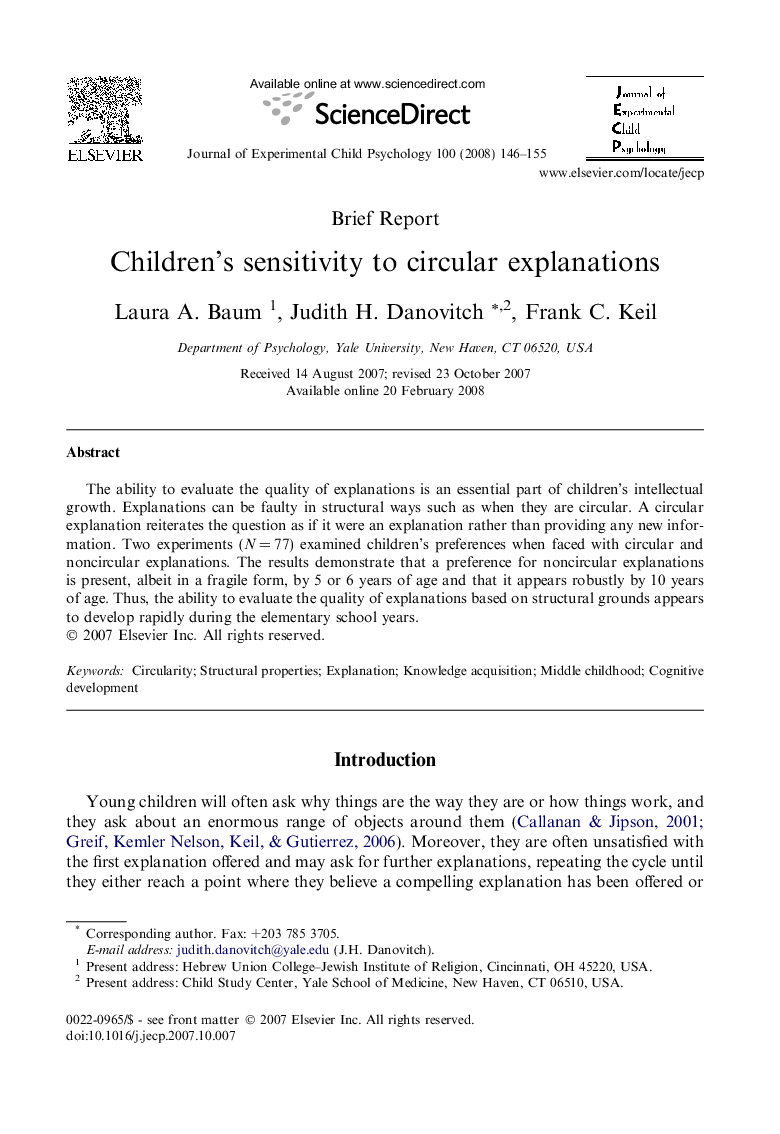| Article ID | Journal | Published Year | Pages | File Type |
|---|---|---|---|---|
| 918742 | Journal of Experimental Child Psychology | 2008 | 10 Pages |
Abstract
The ability to evaluate the quality of explanations is an essential part of children’s intellectual growth. Explanations can be faulty in structural ways such as when they are circular. A circular explanation reiterates the question as if it were an explanation rather than providing any new information. Two experiments (N = 77) examined children’s preferences when faced with circular and noncircular explanations. The results demonstrate that a preference for noncircular explanations is present, albeit in a fragile form, by 5 or 6 years of age and that it appears robustly by 10 years of age. Thus, the ability to evaluate the quality of explanations based on structural grounds appears to develop rapidly during the elementary school years.
Keywords
Related Topics
Social Sciences and Humanities
Psychology
Developmental and Educational Psychology
Authors
Laura A. Baum, Judith H. Danovitch, Frank C. Keil,
